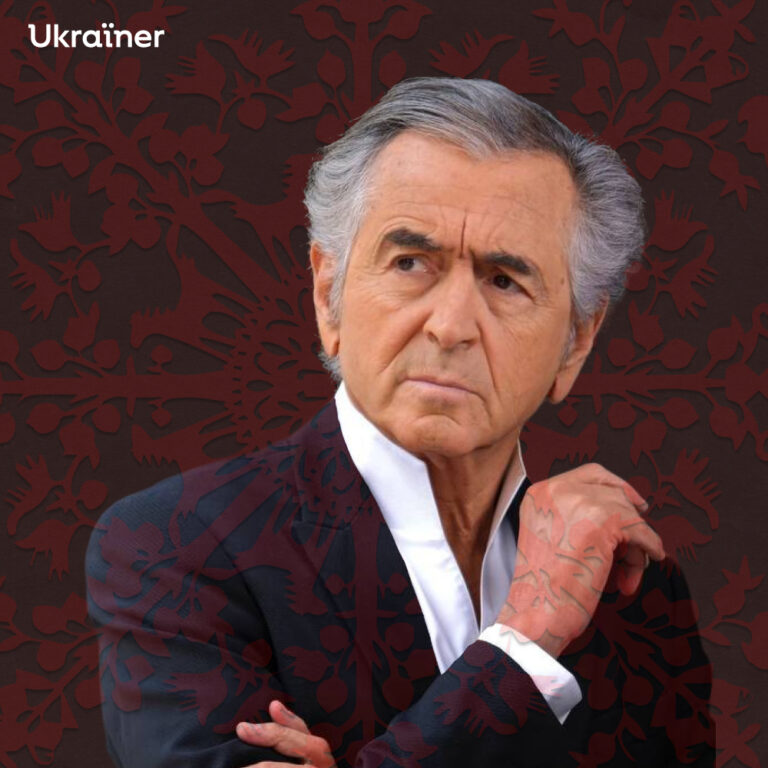Гість подкасту «Деколонізація» Бернар-Анрі Леві, французький філософ, письменник і публічний інтелектуал, ділиться думками про мінливість влади в сучасному світі та загрози, з якими стикаються демократії.
Як військовий журналіст Бернар-Анрі Леві документував події в Афганістані, Нігерії, Сомалі, Іраку, Курдистані, на Балканах. Також активно висвітлює історичні події в Україні з 2014 року, зняв кілька документальних фільмів про український спротив. В інтерв’ю Леві розмірковує про те, як нездатність Заходу підтримати молоді демократії сприяла зростанню авторитаризму, як виведення військ США з Афганістану підготувало ґрунт для повномасштабного вторгнення Росії в Україну, а також пояснює, чим допомога новим демократіям відрізняється від колоніального втручання.
— Хотілося б почати із книги «Ізраїль на самоті», яку ви нещодавно видали. Чи могли б ви розповісти про неї?
— Я вирішив писати про події, що сталися 7 жовтня 2023 року (напад ХАМАС на Ізраїль. — ред.). Наступного дня, 8 жовтня, першим-ліпшим рейсом вирушив на південь Ізраїлю. Я відвідав села й кібуци (громади. — ред.), які зазнали руйнувань, зустрічався з тими, хто вижив в умовах активних бойових дій і засідок, організованих терористами. Побачене жахнуло мене. Це викликало той самий рефлекс, що й в Україні десять років тому, незабаром після початку [російсько-української] війни, а також через два з половиною роки від початку повномасштабного вторгнення.
В Україні я відчував потребу знімати матеріали та створювати фільми, в Ізраїлі я вирішив писати. Для мене це частини однієї боротьби: два фронти у війні за свободу, демократію, права людини проти тиранії, варварства й геноциду.
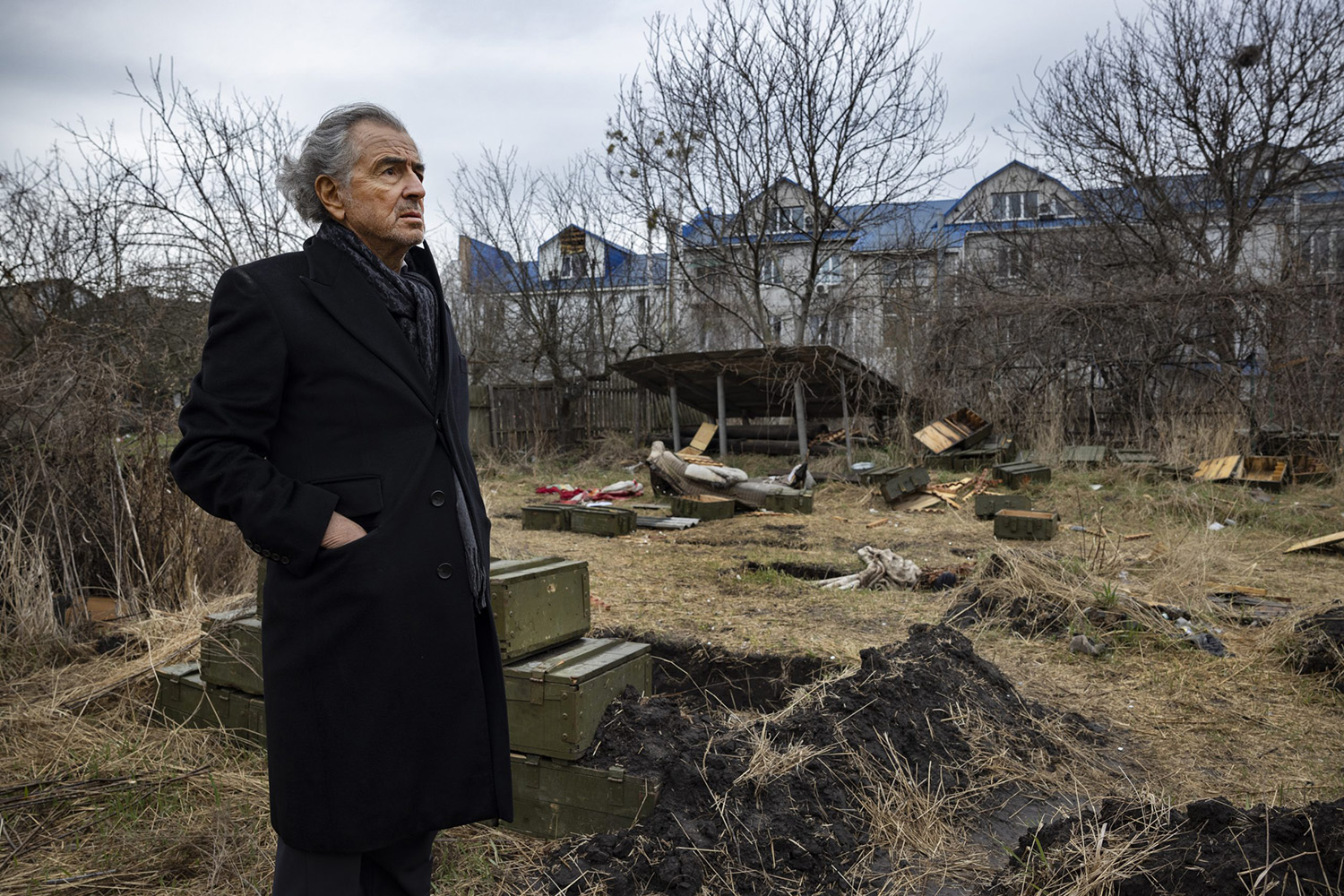
Бернар-Анрі Леві в Бучі. Фото: Марк Руссель.
— Чому вирішили зосередитися на Україні та Ізраїлі? Поясніть ідею про те, що це два фронти однієї і тієї ж війни.
— Тому що в обох випадках я зрозумів, що відбувається щось грандіозне, — те, що у своїх філософських працях називаю Подією з великої літери. В історії щодня відбуваються мільйони подій. Але раптом стається одна, яка має особливі характеристики.
По-перше, ніхто не очікує, що вона буде саме такою. По-друге, вона певною мірою безпрецедентна. І, по-третє, вона не лише має величезні наслідки, а й змінює карту світу. Я відчув це миттєво 7 жовтня 2023 року і 24 лютого 2022 року.
Коли росіяни розпочали вторгнення, я усвідомив, що ми вступили в абсолютно нову епоху і світ уже ніколи не буде таким, як раніше, ні для України, ні для Європи, ні для парадигми політичних відносин, яка тут виникла.
Обидва випадки відчуваються саме такими Подіями, які стаються вкрай рідко. Їх може бути дві, три або чотири на століття. І дві з них відбуваються зараз.
— Із 1970-х років ви критикували комунізм і раніше за інших передбачили тоталітарні методи, які демонструють такі лідери, як Путін, Ердоган і Сі Цзіньпін. Як вам вдалося виявитися правим у багатьох проблемах, які інші не змогли побачити?
— Це могло бути випадково або, можливо, я ментально й інтелектуально перебуваю на перехресті між філософією та реальністю. У своїй книзі десятирічної давності «Імперія та п’ять царів» я докладно описав те, про що ви згадали. Демократії — не лише західні, а й демократичний дух загалом — повинні були протистояти новому інтернаціоналу тоталітарних держав.
Це передусім Росія; Китай, що діє в тіні; Іран як ключовий союзник; ісламістський інтернаціонал, представлений Катаром, Талібаном тощо; Туреччина. Ці п’ять царів вирішили розвалити імперію свободи. Їхня визначальна риса в тому, що колись вони були великими імперіями — блискучими цивілізаціями, які занепали, а тепер, у нас на очах, прагнуть відродитися. Вони вирішили відновити свою могутність, бо відчули слабкість — порожнечу у світі демократій.
Коли писав книгу, фокусувався не на Україні, а на Курдистані (географічний і культурний регіон, що охоплює частини Туреччини, Ірану, Іраку та Сирії. — ред.). Тоді я був залучений до руху за звільнення курдів, їхньої війни проти «Ісламської держави». Я бачив, наскільки мужніми були курди, як вони перемагали ІДІЛ, як самотужки виконували свою місію для всіх нас — західних європейців та американців. Вони були нашим щитом і мечем (курди допомагали запобігти поширенню терористичних атак ІДІЛ за межі Близького Сходу. — ред.).
ІДІЛ
«Ісламська держава» – радикальне терористичне угруповання, яке проголосило створення так званого халіфату (ісламської держави) на частині територій Іраку та Сирії 2014 р. Дотримується жорстокої ідеології ісламізму, відома численними терактами, масовими стратами та руйнуванням культурної спадщини.Однак, коли їхня місія була виконана, ми на Заході — в Європі й Америці — зробили щось неймовірне. Ми їх покинули. Наші лідери заявили: «Вони зробили свою справу, все закінчено. Нам вони більше не потрібні». І тоді я побачив, як Туреччина, Сирія, Іран, Росія та Китай зрозуміли, що Захід не може захистити своїх союзників. Вони побачили нашу слабкість — зраду тих, хто проливав за нас кров, — як можливість для наступу.
Цей період курдської історії дав мені змогу дещо усвідомити. Я уявив новий світ, де слабких Америку та Європу експлуатують п’ять колишніх імперій. Я переконаний, що повномасштабного вторгнення в Україну ніколи б не сталося, якби Путін не сприйняв нашу зраду курдів як сигнал про занепад Заходу. Було ще два сигнали: ми зрадили афганців і залишили демократичні сили у Сирії, наприклад, коли Трамп вирішив вивести війська, що дало «відмашку» Башару Асаду (диктатор, що керував Сирією у 2000–2024 рр. — ред.). Це означало для Путіна: «Ми, імперія свободи, відступаємо. Тепер ваш час, п’ять царів».
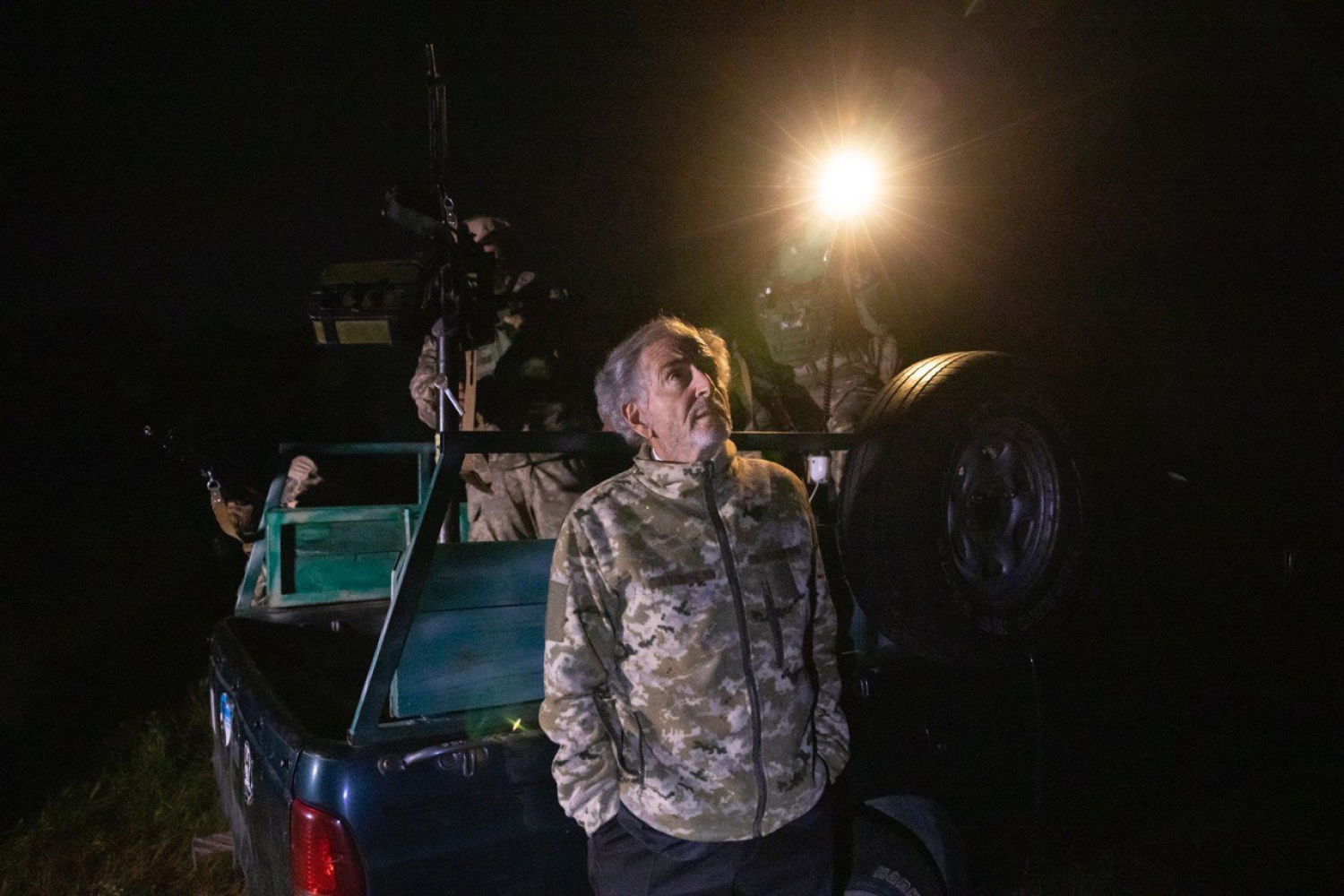
Фото: Марк Руссель.
— Ви були в Афганістані й бачили ситуацію на власні очі. Що там відбувалося перед тим, як США вивели війська?
— Я був в Афганістані за кілька місяців до того, як таліби захопили владу. Перебував у Кабулі та Панджшері разом із сином легендарного командира [Ахмада Шаха] Масуда (афганського військового лідера, який очолював опір радянському вторгненню у 1980-х і боровся з талібами, поки його не вбили у 2001 році. — ред.). Бачив, як піднімалося громадянське суспільство, розвивалася вільна преса, а жінки почали відкривати обличчя. Тоді таліби ховалися в селах, виходили лише вночі. Вони були розгромлені.
А потім раптом американці, з ініціативи Трампа, вирішили організувати переговори з талібами в Катарі. Чому? З якою метою? Ніхто не знав. Американці вирішили, що «досить», бо вони тримали там «занадто багато військ». Але навіть сьогодні в Західній Європі в них десятки тисяч солдатів. В Афганістані ж їх було всього вісім тисяч, і ті здебільшого перебували в укріплених базах. Останні два роки там не було втрат. І цього виявилося достатньо, щоб створити атмосферу безпеки, яка дала змогу розкритися жінкам й зародитися вільній пресі.
Дохійська угода
Мирний договір між США й талібами, який офіційно завершив участь США у війні в Афганістані. Підписаний 29 лютого 2020 року в місті Доха, столиці Катару.Однак американці вирішили піднести країну талібам на тарілочці. Це було настільки незрозумілим, що могло бути лише сигналом для таких лідерів, як Кім Чен Ин у Північній Кореї, [Алі] Хаменеї в Ірані і, найважливіше, Путін у Росії. У результаті Путін автоматично інтерпретував цю історію як дозвіл діяти.
— Західне втручання — чи то військове, фінансове, чи дипломатичне — часто називають колоніалізмом, особливо в Африці, Азії та Латинській Америці. Захід має і далі докладати зусиль для створення демократій у світі чи має втручатися лише тоді, коли місцеве населення справді прагне демократії?
— Будувати демократію там, де немає справжнього бажання з боку народу, — марно, і цього не потрібно робити. Однак допомагати людям, коли вони самі прагнуть демократії, борються за неї, просять допомоги й щиро потребують підтримки, — наш обов’язок.
Ось чому, наприклад, є різниця між війною США в Іраку й половинчастими зусиллями в Афганістані. Інтервенція США в Іраку у 2003 році була помилкою, оскільки з різних причин там не було внутрішнього демократичного руху. Це призвело до своєрідного демократичного месіанства, ніби демократія може з’явитися зненацька, нав’язана Заходом. Такий підхід не працює.
В Афганістані ситуація була зовсім іншою. Я вперше поїхав туди 1981 року. Їхнє прагнення до демократії зростало. Я спостерігав, як люди висловлювали бажання поділяти наші цінності — цінності Європи. Вони говорили: «Ці цінності — не лише ваші, вони універсальні. Це й наші цінності». Люди відчували, що ми належимо до однієї родини і що ми разом. Вони просто просили допомоги. Враховуючи це, ми були зобов’язані втрутитися.
Ті, хто називає це колоніалізмом чи імперіалізмом, втратили свій моральний і політичний орієнтир. Коли американці чи європейці підтримують Україну — хоч і не настільки, як мені хотілося б, але вони це роблять, — це не колоніалізм. А ось те, що робить Росія, — колоніалізм.
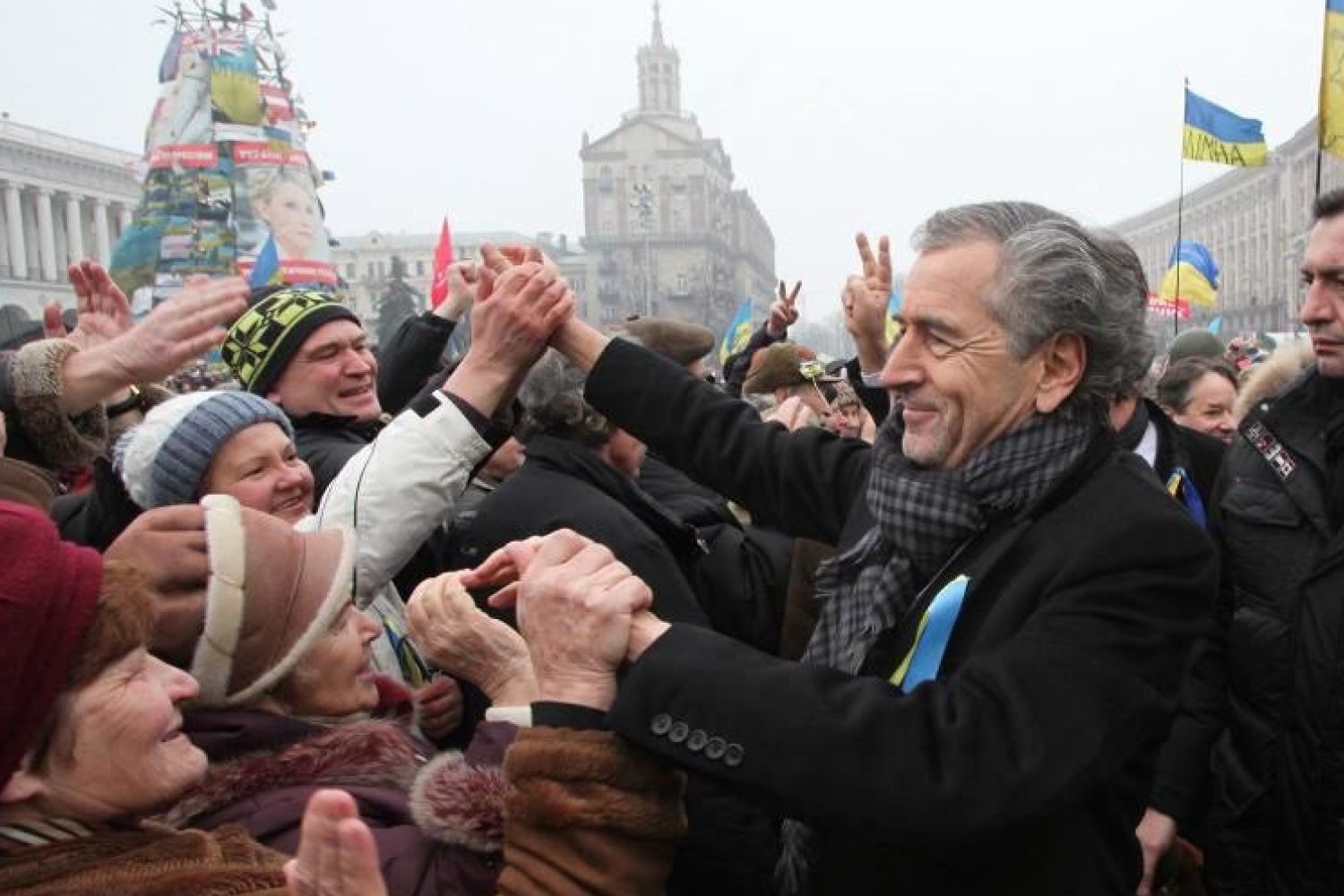
Фото: Алексіс Дюкло.
— Ви зазначили, що підтримка України часто здається повільною й недостатньо рішучою — не лише у військовій допомозі, а й в інформаційній війні. Яка роль політичних і громадських лідерів у донесенні цієї загрози? Чому вони не докладають більше зусиль, щоб суспільство знало, що Захід уже перебуває у війні з Росією, Іраном і Китаєм?
— Я бачу це на прикладі моєї країни. Наприклад президент [Емманюель] Макрон — справді щирий союзник України й хороший друг вашого президента. Французьке громадянське суспільство також підтримує Україну. Багато людей майже щосуботи виходить на демонстрації, зокрема на площу Республіки (головна площа в Парижі, традиційне місце проведення мітингів і громадських заходів. — ред.). Іноді ці зібрання дуже численні.
Тож підтримка є, але ми певною мірою стали заручниками ситуації. Ми, ті, хто розуміє, опинилися між двома потужними силами. Перша — це так звана політична еліта: експерти з міжнародних відносин, які часто мало що знають, але вдають із себе фахівців. Друга — це проросійські політичні сили у Франції: праві на чолі з [Марін] Ле Пен (лідерка найбільшої ультраправої партії у Франції «Національне об’єднання», фр. Rassemblement national. — ред.), а з іншого — нібито ліві, очолювані [Жаном-Люком] Меланшоном (лідер партії «Нескорена Франція», фр. La France Insoumise. — ред.).
Останні вибори у Франції — як парламентські, так і президентські — показали, що велика частина населення підтримує партії, [які діють як проросійські]. Ті, хто намагається з усіх сил донести свій голос, змушені протидіяти цьому.
Те саме відбувається й у США. Там є прихильники руху «Америка понад усе» (англ. America First. — ред.), послідовники руху MAGA (Make America Great Again — політичне гасло «Зробімо Америку великою знову», яке популяризував Дональд Трамп. — ред.), які, здається, переконані, що Путін достойний і надійний партнер, з яким можна вести перемовини.
— Чи вважаєте ви, що ліві в Європі сьогодні стали новим рушієм антисемітизму й відбілювання деяких антидемократичних тенденцій загалом?
— Безумовно. По-перше, я відмовляюся називати їх лівими, адже вони діють як праві. Якщо ви підтримуєте диктаторів по всьому світу — Путіна, Кім Чен Ина, Мадуро; якщо заявляєте, що Башар Асад, відомий своїми звірствами в Сирії, «виконує чудову роботу», і висловлюєте співчуття Хасану Насраллі з «Хезболли», як вас можна вважати лівими? Для мене це неприйнятно з етичної точки зору. Ці люди вже належать до ультраправих. Вони безумовно стали головним каналом поширення відвертого антисемітизму у Франції. У нашому суспільстві не має бути місця цьому явищу. Лише через кілька днів після 7 жовтня, коли Ізраїль ще оговтувався від шоку, [Жан-Люк] Меланшон заявив, що демонстрація проти антисемітизму — це «велике зібрання прихильників геноциду» у Франції.
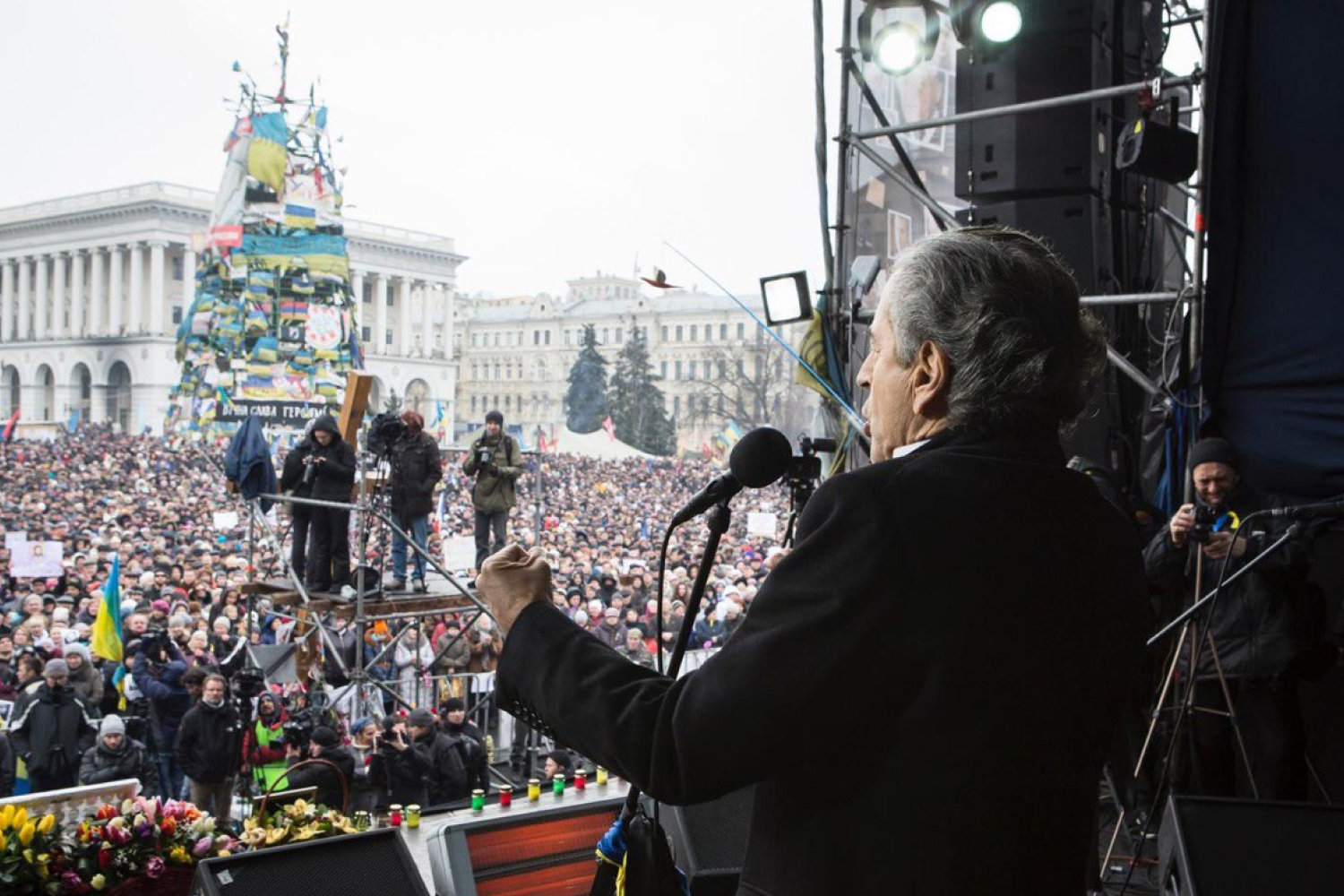
Фото: Алексіс Дюкло.
— Праві заявляють про себе як про «нових захисників Ізраїлю», одночасно називаючи Путіна своїм другом. Чи можете пояснити, чому Путін і Росія не друзі Ізраїлю?
— Тому що вони ненавидять демократію, лібералізм, цивілізацію, а також євреїв. Це була одна з великих помилок Беньяміна Нетаньягу: він повірив у фальшиву дружбу Путіна. Я пам’ятаю, як у квітні 2022 року, після повернення з першої поїздки до України та зйомок документального фільму «Чому Україна» (фр. Pourquoi l’Ukraine. — ред.), я відчував жах від побаченого. Побував неподалік Маріуполя, зустрічався з людьми з «Азовсталі». Коли вирушив до Ізраїлю, то закликав його керівництво: «Розплющте очі, відкрийте вуха — не будьте сліпими й глухими. Там відбувається щось надзвичайно важливе. Справжня дружба і братерство — з Україною, а не з Путіним; інакше ви станете наступною мішенню».
Через два роки люди Путіна тихо готувалися до 7 жовтня в Бейруті разом із «Хезболлою» та іранськими посадовцями. Ми точно знаємо, що на цих підготовчих зустрічах були російські офіційні особи. Ба більше, після 7 жовтня Кремль зустрічав вбивць із ХАМАСу з привітаннями й визнанням. Лише тоді ізраїльські лідери почали це розуміти, але було вже запізно.
— Ви були в Україні під час Помаранчевої революції у 2004 році, потім під час Майдану [у 2013 році], і з 2014 року провели багато часу на фронті. Ви часто говорите про те, як українці борються за свободу, прагнуть демократії і готові за неї боротися. Чому, на вашу думку, Заходу знадобилося так багато часу, щоб це зрозуміти?
— Захід завжди діє довго. Скільки часу знадобилося, щоб визнати геноцид вірмен (винищення вірменського народу на території Османської імперії та Турецької республіки з 1915 до 1923 років. — ред.)? Скільки часу пішло на усвідомлення того, що 1936 року, під час громадянської війни в Іспанії проти фашизму, на кону стояло майбутнє світу? Скільки потрібно було часу, щоб зрозуміти, що Гітлер становив загрозу для всього світу? А скільки, щоб усвідомити, що післясталінські режими у Східній Європі були фашистськими?
Берлін у 1953 році (придушення громадських протестів за ліберальні реформи в радянській Східній Німеччині. — ред.) — ми не діяли. Будапешт у 1956 році (масові антирадянські виступи, придушені військовою інтервенцією СРСР. — ред.) — ми не діяли. Польща в 1956 році (масові протести за політичні реформи та автономію від СРСР. — ред.) — ми не діяли. Прага, Чехословаччина, у серпні 1968 року (придушення руху за лібералізацію комуністичного режиму, відомого як «Празька весна». — ред.) — ми знову не діяли. І навіть у Польщі в 1981 році, під час робітничого повстання, яке очолив Лех Валенса, міністр закордонних справ Франції при [президенті] Франсуа Міттерані сказав: «Нічого не відбувається; це не наша справа».
Лех Валенса
Польський політик, дисидент, президент Польщі (1990—1995).Парадоксально, але цього разу демократії менш запізнюються в підтримці України, ніж будь-коли раніше. Проте допомога все ще надходить поступово, як вони це називають, із затримками. Це допомагає Україні уникати втрат, але не сприяє перемозі.
Отже, Захід завжди спізнюється, тож це можна охарактеризувати як одну з його визначальних рис. У Заходу є демократія, права людини і звичка запізнюватися. Це те, з чим нам потрібно боротися. Можливо, вперше люди, як-от я, були частково почуті, коли справа торкнулася України. У 2014 році я мав велику честь двічі виступити на Майдані. Звертався до Заходу: «Будь ласка, зрозумійте, що на цій площі більше цивілізації, ніж у всій Росії». Я сказав: «Зрозумійте, що доля Заходу, наша доля у Франції та Європі вирішується саме тут, на цій площі». Мої слова лунали в порожнечу. Світ прокинувся лише в березні 2022 року — навіть не в лютому.
— Чи досі імперський наратив Росії щодо України й регіону зберігає силу на Заході, чи його вже більше маргіналізовано?
— Так, цей наратив маргіналізовано більше, ніж раніше. З’явилися інші голоси, які захищають Україну. Наприклад, у Франції є організація Stand with Ukraine (міжнародний рух солідарності, що організовує протести, кампанії в соцмережах і збір коштів. — ред.), яка має потужний вплив. Її головна речниця Алін ле Бейл-Кремер є дуже впливовим голосом. Також є інтелектуали, як-от Ніколя Танзер (французький політичний аналітик й експерт із питань міжнародної безпеки. — ред.), який активно підтримує Україну. Організації на кшталт Desk Russie (французька онлайн-платформа, що поширює інформацію про Росію та інші країни колишнього СРСР у світі. — ред.) під керівництвом Галі Акерман виконують важливу роботу. І Сара Даніель із L’Obs (колишній Le Nouvel Observateur — один із провідних щотижневих журналів у Франції. — ред.) робить значний внесок.
Крім того, мої фільми транслювали на головному каналі французького державного телебачення. Коли сотні тисяч людей бачать ці кадри, це створює помітний ефект. Коли мільйон глядачів спостерігає за тим, як [російські військові] затоплюють Херсон, за героїзмом військових у Покровську, стійкістю людей у маленькому притулку в Торецьку чи битвою за Кліщіївку, такі повторювані враження мають вплив.
Отже, путінська пропаганда, безумовно, отримує протидію. Але певний її вплив усе ще залишається.
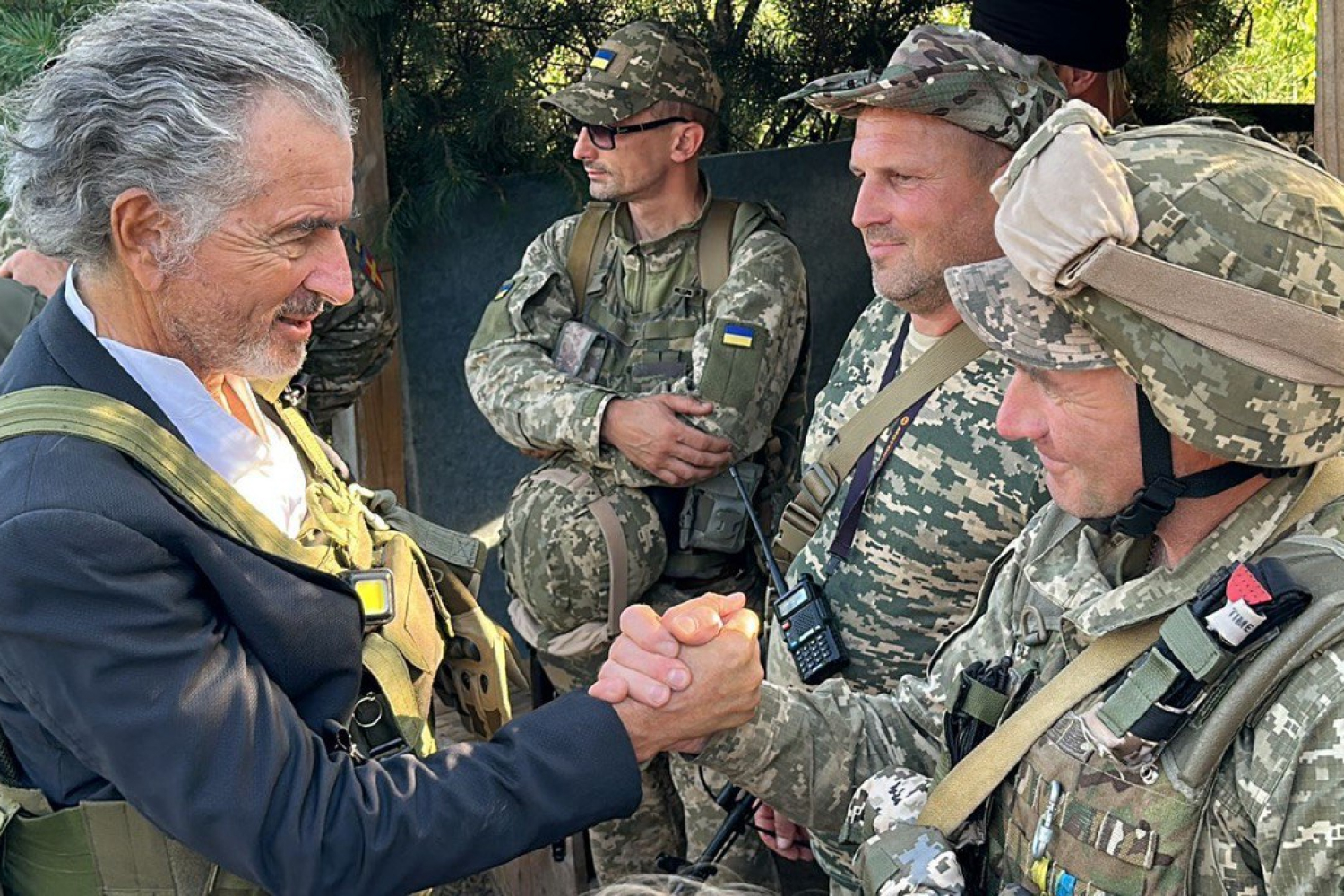
Фото: Ярослав Прокопенко.
— А як щодо академічної спільноти? Що стосується України, то науковці досі покладаються переважно на імперські наративи, часто посилаючись на російські джерела. Концепція України та Східної Європи загалом погано сформульована в університетах.
— Це ідеологічна битва. Університети — одне з полів бою, але вони заполонені так званими псевдолівими, які займають там міцні позиції. Так, вони готові вестися на пропаганду, що зображає Україну маріонеткою НАТО, а НАТО — інструментом американського імперіалізму. Ці псевдоліві відкидають універсалізм. Вони не хочуть того, що називають культурною апропріацією (привласненням. — ред.). Вони не хочуть, щоб француз чи американець говорив від імені України, тому ви маєте говорити за себе.
— Коли ми говорили про Афганістан, Курдистан, звідки ви робили репортажі, і їхню боротьбу, ви згадували, що такі недопредставлені нації важливі. Чому Захід має чути їхні історії?
— Бо нікому немає до цього діла, і це мене обурює. Коли всім байдуже, я вважаю, що завдання інтелектуала — заговорити про це. Я був у Дарфурі під час геноциду. ООН та неурядові організації припинили підрахунок смертей після 400 тисяч. Також був у Руанді, де відбувся геноцид (в африканській країні 1994 року представники народності хуту вбили від 500 тис. до 1 млн представників народності тутсі. — ред.), який лежить на совісті Франції. Бував і в інших країнах, злочини в яких ще менш задокументовані.
Війна в Дарфурі
Збройний конфлікт, який розпочався у 2003 р. між урядовими силами Судану та повстанськими групами, призвів до загибелі близько 600 тис. та переміщення майже 2,5 млн осіб.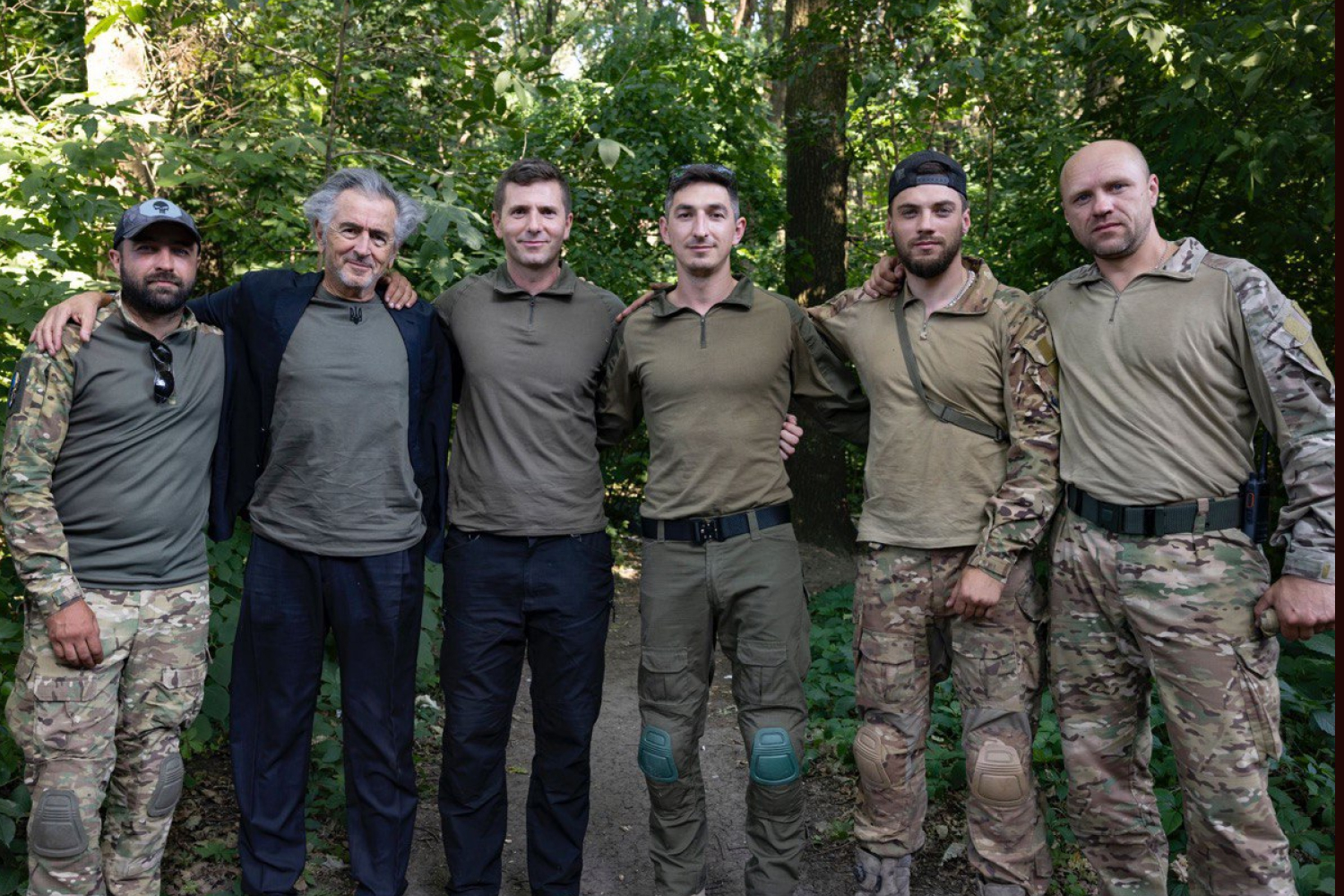
Фото: Марк Руссель.
— В одному з інтерв’ю ви згадали про звільнення Аушвіца й підкреслили, що це зробив український підрозділ. Думаю, що це вперше я чую, щоб хтось так сказав, особливо не українець. Чому ви вирішили бути настільки конкретним?
— Тому що це правда. Аушвіц звільнив 1-й Український фронт, який складався переважно з українців. Першою людиною, що ввійшла в концтабір, був Анатолій Шапіро, єврей-українець, який став свідком жахливих сцен усередині. Чому я вирішив це підкреслити? По-перше, цю правду часто ігнорують. По-друге, це потужний контраргумент проти російської пропаганди, яка стверджує, що Україна потребує «денацифікації». Спроби Росії привласнити пам’ять про боротьбу проти нацизму — це огидно. Так, вони були частиною цієї боротьби, але українці також були її значною частиною та понесли найбільші втрати.
1-й Український фронт
Формація Радянської армії під час Другої світової війни, яка відіграла ключову роль у звільненні України від нацистської окупації, наступі на територію Польщі та остаточному наступі проти нацистської Німеччини, включно із захопленням Берліна.Ми маємо зупинити привласнення пам’яті про боротьбу з нацизмом тими, хто сьогодні уособлює нацизм, як-от Путін. Коли вони атакували Бабин Яр (російські ракети вдарили в район цього меморіалу в Києві 1 березня 2022 року. — ред.), я сказав на французькому телебаченні, що українці є тими, хто звільнив Аушвіц. Тепер, коли росіяни бомбардують Бабин Яр, вони доводять, що є злочинцями й відвертими фашистами. Тому я це кажу і вважаю, що це надважливо.

